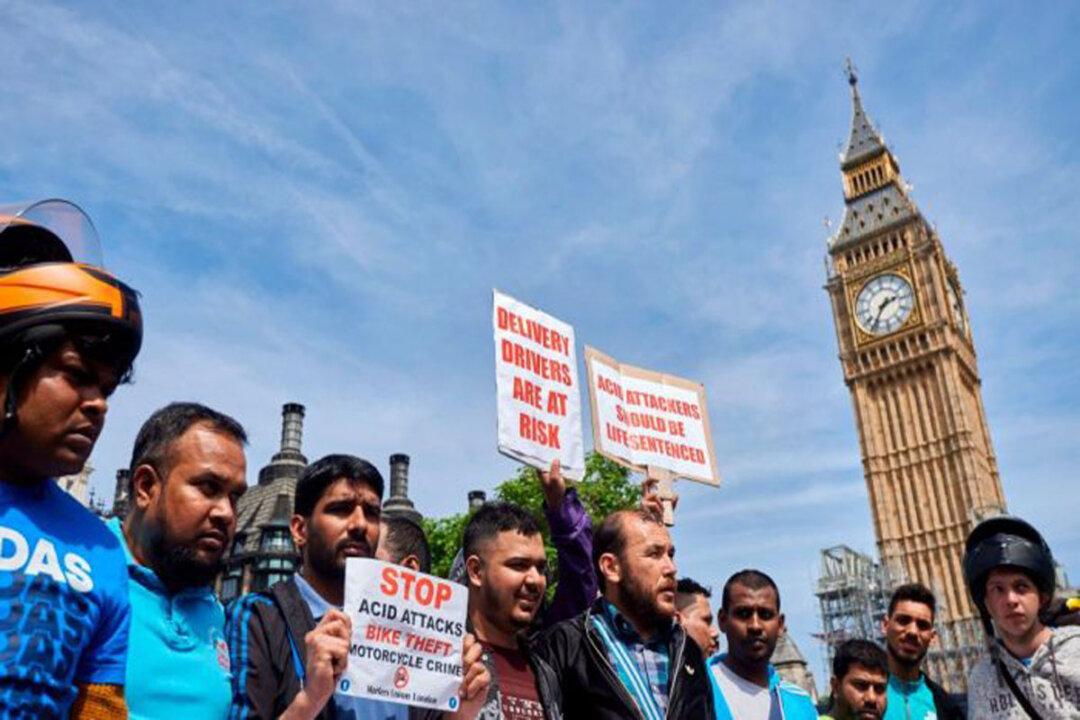Acid attacks in London have surged to record levels, with over ten times more incidents reported last year compared with 2012, an investigation by the Evening Standard has found.
According to Metropolitan Police Freedom of Information figures obtained by the Standard, acid attacks in the city rose to 752 in 2018, up tenfold from 66 in 2012.





